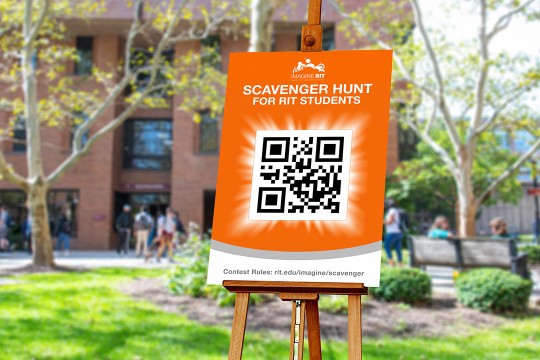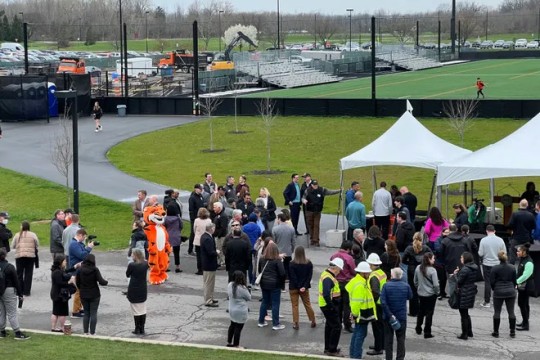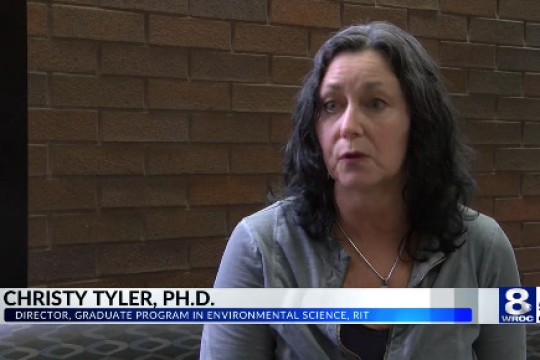Gannett Lecture at RIT Explores Economy and Polity in a Digital Global Age
Sassen has written and edited more than seven books including Global Networks/Linked Cities (2001), The Global City (2001), Guests and Aliens (1999), Globalization and Its Discontents (1998), and Losing Control? Sovereignty in an Age of Globalization (1996). Her books have been translated into more than 10 languages.
Sassen, the Ralph Lewis Professor of Sociology at the University of Chicago and Centennial Visiting Professor at the London School of Economics, is a member of the Council on Foreign Relations and a fellow of the American Bar Foundation. She is leading a five-year study of Governance and Accountability in a World Economy as well as directing a project on global cities and cross-border networks for the Institute of Advanced Studies (United Nations University, Tokyo).
According to Robert Manning, director of the Gannett Lecture Series, "Professor Sassen is one of the foremost theoreticians of the emerging information society. Her work is highly influential in shaping international policies regarding global migration flows (especially refugees), human rights, and business-labor relations. Her lecture will highlight the challenges and opportunities that the nation will face in the aftermath of the September 11th terrorist attacks."
The talk—free and open to the public—will be handicapped accessible and sign interpreted, and will conclude with a reception. Call 475-2057 for more information or brochures, or log onto www.rit.edu/gannettseries.
About the lecture series: RIT’s College of Liberal Arts began the Gannett Lecture Series in the mid 1970s in two-year thematic blocks, which have included environmental, citizenship, Constitutional and millennial themes. The series coordinates with the university’s Senior Seminar, requiring all RIT seniors to attend. For Robert Manning’s tenure as series director, the lectures will focus on globalization, human rights and citizenship.
The College of Liberal Arts, one of eight colleges at RIT, provides the foundation for every RIT student. The College offers studies in anthropology/sociology, philosophy, fine arts, language and literature, history, science/technology/society, and political science and offers bachelor’s degrees in criminal justice, economics, social work, psychology, public policy, and professional and technical communication. The college offers master’s degrees in communication and media technology, public policy and school psychology.
For the past decade, U.S. News and World Report has ranked RIT as one of the nation’s leading comprehensive universities. RIT is also included in Yahoo Internet Life’s Top 100 Wired Universities, Fisk’s Guide to America’s Best Colleges, as well as Barron’s Best Buys in Education.














